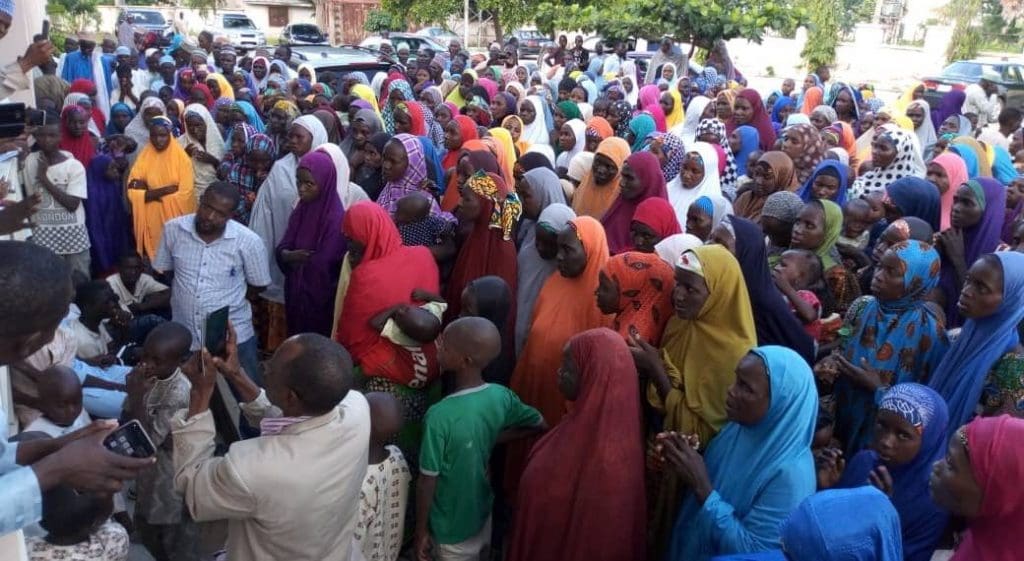With the apparent failure of the Nigerian government to defeat the Boko Haram insurgents and clear the remnants of the group in the North East of the country and the unabated activities of rampaging cattle herders and bandits, the number of internally displaced persons (IDPs) in Nigeria will continue to grow.
The other drivers of displacement in Nigeria are religious conflicts and communal clashes over boundary disputes and ethnic cleansing that is peculiar with some northern states where the natives of some communities are being eliminated by the settlers, who are allegedly backed by the government and its security forces. In addition, flooding displaces thousands of Nigerians yearly, especially persons living in communities along the coastal areas of the country.
Despite the millions of persons displaced annually in Nigeria, the country does not have a clear cut legislation on IDPs except for some ad-hoc policies used in addressing displacement issues and a number of agencies saddled with the responsibility to assist displaced persons in the numerous camps spread across the country.
The agencies include the National Commission for Refugees (NCFR), National Emergency Management Agency (NEMA), the Human Rights Commission, Institute of Peace and Conflict Resolution and the security agencies, which include the police, the civil defence and the military. The roles of these agencies are often not clearly spelt out and conflicts of interests are often manifested to the detriment of the displaced persons.
The indispensable roles of the trained aid agencies like the Red Cross, UN agencies and the International Organization for Migration’s (IOM) among others make a lot of impact in the welfare of the displaced persons in Nigeria.
Unfortunately, some of the camps of the IDPs are often attacked by bandits. For instance, on Friday, September 13, hundreds of IDPs barricaded a major road in Niger state, protesting lack of security for their camp, which was attacked and some of the displaced persons lost their lives. The group made up of mostly women and youths rejected the relief materials brought to the camp by officials of government for their use, but demanded for security of their lives and those of their children from the government.
Perhaps, the recent success story of Faraa, a Nigerian woman, who was displaced from her native home of Michika and sought refuge in Yola, the capital of Adamawa state in north-eastern Nigeria, becomes a reference point on how best to cater for and handle displaced persons in Nigeria.
Faraa is just one out of millions of Nigerians who daily go through similar ordeals, including trauma and depression and finally assisted by
one of the foreign organisations to regain her life and become useful to herself, her children and the society.
Faraa’s story by the International Organization for Migration’s (IOM) and distributed by the African Press Organisation (APO) Group on behalf of the IOM, narrated how Faraa (not the real name) met one of the International Organization for Migration’s (IOM) Mental Health and Psychosocial Support (MHPSS) workers in Yola, in October 2015.
Faraa was subsequently assisted by the IOM team when she showed signs of distress and indicators of depression, following her experiences during years of attacks by Boko Haram insurgents in her native home of Michika.
According to the story, the IOM team provided psychosocial support to Faraa and referred her to a mental health facility in Yola where she was treated for severe depression. When Faraa’s health condition improved, she was selected by IOM in 2017 to receive integrated small-scale livelihood support, including a machine to make pasta and raw materials to complement her recovery process.
Faraa used the machine and the raw materials to set up a small thriving business, making chin-chin and pasta from flour, which she sells and uses the proceeds to provide for her four children, three of whom are enrolled in a nearby private nursery and primary school.
The high point of Faraa’s story is that she has saved enough money to buy a piece of land where she is now building a house for her family.
Faraa is just one out of millions of Nigerians, who daily go through similar ordeals in several IDP camps across the country. Her story is a case study and term plate that should be studies and replicated for the benefit of millions of displaced persons to enable them regain their self-esteem and become useful to themselves and the society.
Nigeria has the resources and the personnel to do it, but what may be lacking is the political will to embark on such humanitarian and rehabilitation projects for the wellbeing of millions of displaced persons in the oil-rich West African country.
GIK/APA


